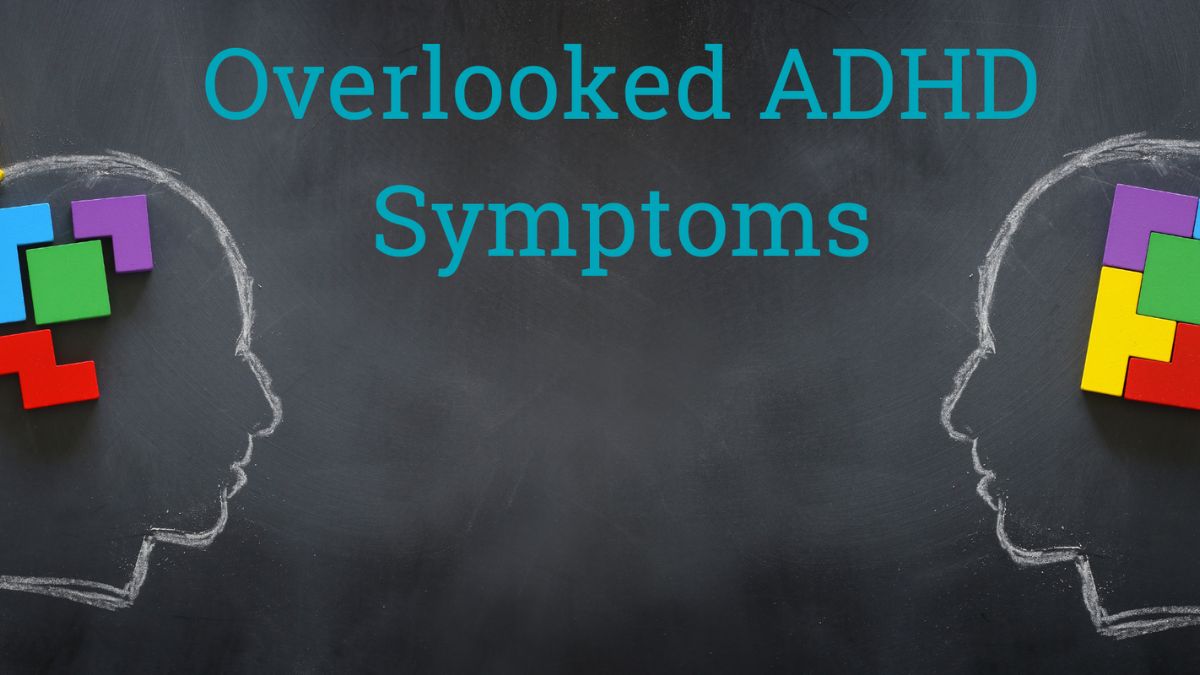HEALTH
Strategies for Managing ADHD Symptoms in Daily Life

Attention Deficit Hyperactivity Disorder (ADHD) is a prevalent neurodevelopmental disorder that affects individuals’ daily lives in multifaceted ways. It’s crucial to appreciate how ADHD influences academic or occupational achievements, routine tasks, social interactions, and personal well-being. Managing ADHD effectively necessitates a comprehensive understanding of its symptoms and impacts. For those seeking tailored guidance, working with an ADHD therapist Denver can provide valuable insights and strategies.
ADHD can disrupt various aspects of life, making it challenging to meet everyday demands. Simple chores can become overwhelming, deadlines may seem unattainable, and maintaining relationships might feel like an uphill battle. Acknowledging these obstacles is the initial step in implementing tactics that promote an organized and satisfying daily routine. Utilizing organizational tools and implementing helpful strategies can significantly impact how we manage daily tasks.
Understanding Common ADHD Symptoms
ADHD symptoms are usually categorized into three main facets: inattention, hyperactivity, and impulsivity. Each person with ADHD experiences these symptoms differently, and their manifestation can vary widely. Understanding these common symptoms can foster a sense of community, knowing others are also navigating similar challenges. A common thread, however, is the need for tailored strategies to address specific challenges.
Difficulties with focus can lead to unfinished tasks, forgotten appointments, and an overwhelming sense of disorder. Impulsivity might result in rushed decisions without weighing the consequences, affecting personal and professional relationships. Meanwhile, hyperactivity often manifests in an incessant need for movement or an inability to remain sedentary for long periods. Understanding these symptoms enables the development of a personalized management approach that can significantly improve daily functioning.
Embracing Routine: A Key to Managing ADHD
Establishing and sticking to a schedule is a highly successful method for handling ADHD. Routines provide a structured environment that can significantly reduce the chaotic feelings often associated with ADHD. They offer predictability, which can help alleviate anxiety about the unknown and improve focus and productivity. Here are some strategies to consider when establishing a routine:
- Begin with a consistent morning routine to set a positive tone for the day.
- Employ digital or physical planners to keep track of tasks and appointments.
- Divide tasks into smaller, easily manageable components and rank them based on significance.
- Incorporate breaks to prevent burnout and improve concentration.
By following a well-outlined routine, individuals with ADHD can better manage time and responsibilities, increasing productivity and reducing stress.
Effective Communication Techniques
Communication can be particularly challenging for those with ADHD, as symptoms may hinder their ability to convey thoughts clearly or listen attentively. Nevertheless, various tactics can be utilized to improve communication abilities, leading to better connections in personal and professional environments.
Techniques such as active listening, where you focus entirely on the speaker without interruptions, and using visual aids to convey points can contribute to more effective communication. Additionally, patience and mindfulness in conversations can help individuals with ADHD express themselves more coherently and understand others better. Integrating these techniques can foster healthier, more productive interactions.
Mindfulness and ADHD
Mindfulness practices, including meditation, deep breathing, and yoga, have gained attention as beneficial tools for individuals with ADHD. These practices can help improve focus, reduce impulsivity, and promote relaxation. Mindfulness encourages individuals to remain present and aware of their thoughts and actions nonjudgmentally.
Studies highlighted by Psychology Today indicate that regular mindfulness practice can significantly improve ADHD symptoms. Those who incorporate mindfulness into their daily routine often experience enhanced emotional regulation and decreased stress levels, leading to a more balanced life.
The Role of Diet and Exercise
To effectively manage ADHD symptoms, it is important to have a balanced diet and exercise regularly. Specific foods containing high protein levels, complex carbohydrates, and omega-3 fatty acids offer unique advantages. These nutrients are vital for creating neurotransmitters and boosting brain function. Regular exercise raises dopamine levels, leading to increased focus and alertness.
People with ADHD should follow a diet low in sugar and processed foods to prevent symptoms from worsening. Routine exercise, like a jog in the morning or yoga in the evening, can significantly improve mood and cognitive abilities.
Leveraging Technology for ADHD Management
Technology is essential in managing ADHD in the present digital era. Many apps and tools have been created to assist people with managing their time, staying organized, and maintaining focus. Productivity apps like task managers, digital calendars, and reminders can help maintain a structured schedule and ensure tasks are completed promptly.
Additionally, meditation apps can assist with mindfulness practices by offering guided sessions that can be seamlessly integrated into daily schedules. Investigating tech options can be very helpful in effectively and efficiently handling ADHD.
Seeking Support: Professional and Community Resources
Beyond self-management strategies, professional and community support is invaluable for individuals with ADHD. Therapy offers a personalized approach to understanding and addressing symptoms, with therapists providing guidance and coping strategies tailored to individual needs.
Community support groups provide a unique setting to exchange stories and learn from others facing similar obstacles. These organizations offer emotional support and helpful guidance, assisting members in reducing feelings of isolation and feeling more empowered in handling their ADHD. By blending these resources with individual tactics, people can attain a well-rounded and satisfying life while coping with ADHD.
HEALTH
Why Martial Arts Sydney Is More Than Just Self-Defence

Do you want to know what makes martial arts different from other physical activities? When you train in martial arts Sydney, you learn skills that help you defend yourself while building mental strength development in practical ways that improve your daily life.
What Martial Arts Classes Really Teach You
Many people join martial arts, thinking they’ll only learn how to fight. The reality? Martial Arts training reshapes your body and mind in ways regular gym workouts don’t.
How You Build Toughness Through Training
Martial arts classes put you in challenging situations on purpose. You learn to handle pressure, solve problems, and develop grit that serves you everywhere.
Regularly facing difficulties with supportive classmates makes you calmer during stressful moments. This calm helps with work deadlines, traffic jams, and family emergencies alike.
Can Martial Arts Actually Improve Your Concentration?
Our attention gets pulled in countless directions every day. Martial arts Sydney training counteracts this by requiring total focus during practice. You don’t just pay attention briefly – you train your mind to lock in completely.
Many parents are told by teachers since their child started classes, they sit still and listen better in class. The clear instructions and immediate feedback in martial arts make focus a trainable skill, not just something you either have or don’t.
Why You’ll Make Real Friends
Academies that teach martial arts Sydney create communities, unlike typical gyms. People who sweat, struggle, and succeed together form genuine bonds.
Your training partners quickly become people who understand your challenges both in and out of class. Many students initially join for fitness but stay for years because of these connections – something particularly valuable in a busy city where meaningful interaction often feels rare.
Physical Changes You Might Not Expect
Regular exercise makes anyone fitter, but training in martial arts Sydney develops specific physical abilities most workout routines miss entirely.
How Your Strength Changes
Unlike machines that isolate muscles, martial arts movements engage your entire body. You develop practical strength that helps with everything from carrying groceries to playing with kids.
Furthermore, martial arts classes teach you to use tension only when needed while relaxing elsewhere. This efficiency helps office workers with chronic tension and weekend athletes alike.
Why Your Coordination Improves
Through repeated practice of precise movements, you rewire your brain’s movement patterns. This improved body awareness leads to better balance, posture, and overall movement quality.
Adults who always considered themselves “uncoordinated” often discover this quality isn’t fixed – it can be developed. The changes happen gradually but add up to noticeable improvements in how comfortably you move through daily life.
How To Choose A Good Martial Arts Sydney Academy
With dozens of options across Sydney, how do you find a school that teaches these deeper skills rather than just physical techniques?
Look at how instructors interact with students. Do they explain the “why” behind movements? Do they address the mental aspects of training? Good schools emphasize character alongside technique.
Check if classes include students of different abilities training together respectfully. The best academies for martial arts Sydney maintain high standards while adjusting teaching methods for individual needs.
Why Start Martial Arts Now
Martial arts training gives you practical self-defence skills while developing mental toughness, focus, and community connections. These benefits help in every area of your life.
Are you ready to see these changes yourself? Visit a local martial arts Sydney academy this week. Watch a class. Talk to students. Find training that fits your goals and schedule – your future self will thank you for taking this important first step.
HEALTH
Skincare for Sensitive Skin: Gentle Solutions for a Healthy, Glowing Complexion

Does your face turn bright red with new creams? Do you experience burning sensations, itchy patches, and that horrible tight feeling? These are classic signs of sensitive skin. Finding proper skincare for sensitive skin can change everything and transform uncomfortable, reactive skin into a calm, balanced complexion.
What Exactly Is Sensitive Skin?
Sensitive skin isn’t just being fussy about products. It’s a real condition. Dermatologists explain that sensitive skin reacts strongly because its protective barrier doesn’t function properly. This leads to inflammation, redness, dryness, and irritation. Cold weather, pollution, sunshine, and ingredients in regular skincare products can all trigger reactions.
The warning signs include:
- Stinging sensations after washing
- Redness that doesn’t fade, even hours later
- Persistent dry patches despite regular moisturising
- Areas that feel perpetually itchy and tight
- Visible broken capillaries on cheeks or nose
Why Most Shop-Bought Products Make Things Worse
Many people fall into the common trap of spending hundreds of dollars on fancy brands, where each one makes their skin more upset, as mainstream products often contain ingredients that sensitive skin hates:
- Various alcohols (particularly denatured)
- Synthetic fragrances (even when labelled “natural scents”)
- Chemical preservatives with complex names
- Exfoliating acids that prove too harsh
- Foaming agents like sodium lauryl sulphate
Consistent skincare for sensitive skin provides the stability these complexions desperately need.
Creating a Gentle Skincare Routine That Actually Works
Years of trial and error show that simplicity helps sensitive skin the most. You don’t need fifteen products – you need the right ones. Effective skincare for sensitive skin focuses on healing and protecting rather than harsh treatments that promise quick results.
Bin Your Harsh Cleanser
Your face wash matters enormously. Many cleansers strip the skin barrier daily. Better options include:
- pH-balanced formulas (around 5.5)
- Products without bubbles or foam
- Formulations with fewer than 10 ingredients
- Cream or oil textures rather than gel
Sort Out Your Moisture Barrier
Repairing a damaged skin barrier becomes essential for sensitive skin. Australian jojoba oil offers a remarkable solution. Unlike other oils, jojoba closely resembles human skin’s natural sebum. It’s actually a liquid wax ester that delivers:
- Natural vitamins A, D and E that nourish depleted skin
- Omega 6 and 9 fatty acids that strengthen the barrier
- Powerful antioxidants that fight environmental damage
- Deep hydration without clogging pores
Adding a few drops of jojoba to a plain moisturiser can transform skin health within weeks.
Soothing Skincare Ingredients That Calm Reactive Skin
Not all botanicals work for sensitive types (essential oils often cause problems), but these gems consistently help calm irritated skin:
- Australian jojoba as a non-negotiable staple
- Centella Asiatica extract (cica) for reducing redness
- Pure aloe vera for immediate soothing
- Colloidal oatmeal for intense calming
- Hyaluronic acid for moisture without irritation
- Niacinamide at 5% concentration for barrier repair
Finding the Best Products for Sensitive Skin
Labels can mislead. Look beyond marketing claims for:
- “Hypoallergenic” products (though manufacturers use this term freely)
- Truly fragrance-free options (not just masked scents)
- Ingredient lists where jojoba appears high up
- Items specifically created for eczema-prone or reactive skin
- Packaging that minimises contamination and oxidation
Your Sensitive Skin Deserves Better
Skincare for sensitive skin requires detective work because triggers differ from person to person. Some can’t tolerate vitamin C, while others use it without issues. But jojoba-based products consistently emerge as sensitive skin saviours.
Fed up with red, irritated skin? Start fresh with a stripped-back routine focusing on gentle cleansing and barrier repair with jojoba oil. Your mirror will soon reflect what you’ve wanted all along – calm, comfortable skin that feels like yours again.
HEALTH
Essential Considerations After a Personal Injury Incident

What to Do Immediately After an Incident
A personal injury incident can strike unexpectedly, leaving you feeling disoriented and vulnerable. In these crucial moments, your priority should be ensuring everyone’s safety, including yours. Begin by assessing the environment for hazards such as traffic, unstable structures, or exposed electrical elements. If necessary, quickly move to a safe location or, if incapacitated, signal for help.
Once safety has been established, it is essential to maintain a sense of calm. While this is challenging, keeping a clear mindset enables sound decisions. You may already consider the potential legal ramifications and wonder about personal injury law during this time. This understanding is crucial as it informs how you handle the initial stages after an injury.
Understanding Your Rights
Understanding your rights following a personal injury can be a source of empowerment. Individuals affected by such incidents frequently encounter many decisions, ranging from medical care to possible legal recourse. Typically, victims have the right to seek compensation for their injuries, which may encompass physical damage, emotional suffering, and financial setbacks, including lost wages or medical expenses. Engaging a personal injury lawyer can facilitate obtaining the compensation you are entitled to, as they can assist in navigating the legal complexities on your behalf. Having a well-informed strategy can significantly impact the outcome of any legal matter. To enhance your understanding, explore comprehensive resources that explain your legal rights as an injury victim.
Gathering Necessary Evidence
The strength of your compensation claim hinges significantly on the evidence gathered at the scene. Documenting the scene might seem challenging in the chaotic aftermath of an accident, but it is a vital step. Take clear photographs from multiple angles, capturing details like road conditions or visible injuries.
Should witnesses be available, collect their contact details and courteously request their event description. Written statements or voice recordings are invaluable. Secure any video footage from nearby cameras, such as traffic or security cameras, which could provide an unbiased account of the incident.
Seeking Medical Attention
Medical attention should be sought immediately after ensuring safety, even if injuries appear to be minor. Prompt medical evaluations are necessary for your health and serve as critical evidence. Minor aches or bruises indicate underlying injuries that could have been left unchecked.
A detailed medical report is an official record of your injuries and is often crucial when filing compensation claims. For instance, understanding the importance of medical procedures like X-rays can better illustrate how injuries are documented and assessed. Skipping this step can lead to complications in your recovery and legal proceedings.
Reporting the Incident
Once immediate concerns are managed, you should report the incident to the authorities. This includes contacting the police to file an official report. This report creates an official and unbiased account of what transpired, which lawyers and insurance companies often examine closely.
Be honest and concise in your account to the authorities. Provide them with the collected evidence, but refrain from speculating about fault or liability, as emotions and stress can colour your perspective.
Consulting a Professional
Personal injury cases often present complexities and involve nuanced details requiring expert guidance. Engaging a personal injury attorney can offer valuable clarity and assistance. A lawyer represents your interests and expertlymanoeuvress through the intricacies of the legal system on your behalf, guaranteeing that you obtain the compensation to which you are entitled.
Prepare for these consultations by gathering all relevant documents. Questions to discuss include your case’s strengths and the lawyer’s experience with similar claims. This relationship will be instrumental, so choose a lawyer whose communication style you find agreeable and who clearly outlines their strategy and expectations.
Navigating Insurance Claims
Filing an insurance claim demands patience and precision. Write down all correspondence with the insurance company and keep detailed records of every exchange. Respond promptly to communications and provide all requested documentation, including medical reports and evidence collected at the scene.
Insurance companies aim to minimize payouts, so be prepared to advocate for yourself firmly. Proactively engaging in the process with a straightforward narrative supported by evidence builds a compelling case for a fair settlement. Avoid rushing the process; thoroughness now can prevent complications later.
Staying Informed and Educated
Finally, education is an ongoing process that bolsters your readiness for personal injury incidents. Continuously familiarize yourself with personal injury law as it evolves with new precedents and legislative changes. This knowledge assists you in the immediate aftermath of an incident and prepares you for potential future scenarios.
Explore readings from reputable legal sources, attend workshops, or consult experts to enhance your understanding. Being well-informed isn’t just about being prepared—it’s about staying empowered in all legal and personal protection aspects.
-

 TECHNOLOGY7 months ago
TECHNOLOGY7 months agoAbout Technology From Axiumtechnet: Exploring the Beautiful Future
-

 TOPIC6 months ago
TOPIC6 months agoInvitation Printing: How to Create Perfect Invitations for Any Occasion
-

 TECHNOLOGY6 months ago
TECHNOLOGY6 months agoThe Rise of Hqpotner: Exploring Its Impact on the Blogging Community
-

 TECHNOLOGY7 months ago
TECHNOLOGY7 months agoAlpha Technologies Fxm350 Snmp Oid: Comprehensive Overview
-

 BUSINESS7 months ago
BUSINESS7 months agoGoogle Business Profile Kgmid Extractor: A Deep Dive
-

 HEALTH7 months ago
HEALTH7 months agoHarriet Goldfischer Providence Health: Ultimate Guide
-

 BUSINESS6 months ago
BUSINESS6 months ago36dview Photography Business Info: Your Ultimate Guide
-

 BUSINESS7 months ago
BUSINESS7 months agoDining Delights: 200 E Business Hwy 23 Walsco Tx
